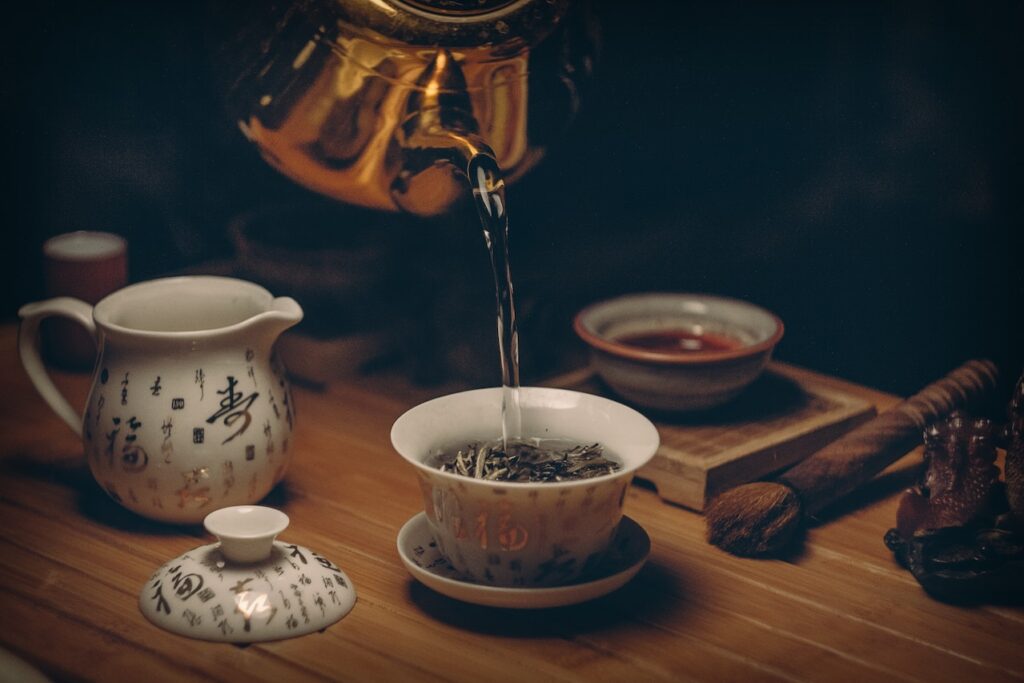Coffee and green tea are two of the most popular beverages in the world, enjoyed by millions of people every day. They are both known for their energizing effects, but many people wonder which one is better for boosting energy. In this article, we will compare coffee and green tea in terms of their energy-boosting properties, health benefits, and any potential drawbacks.
Energy-Boosting Properties
Both coffee and green tea contain caffeine, which is a natural stimulant that can help increase alertness and reduce fatigue. Coffee typically contains more caffeine than green tea, with an average cup of coffee containing around 95 milligrams of caffeine compared to around 25 milligrams in a cup of green tea. This means that coffee may provide a more immediate energy boost than green tea.
However, green tea also contains other compounds that can help increase energy and mental clarity. For example, it contains the amino acid L-theanine, which has been shown to increase alpha brain wave activity, promote relaxation, and reduce stress. This can help counteract some of the negative effects of caffeine, such as jitters and anxiety, and provide a more sustained and focused energy boost.
Where Does Green Tea Come From?
Green tea is a type of tea that is made from the leaves of the Camellia sinensis plant. It originated in China, where it has been consumed for thousands of years. Today, green tea is also widely produced in other countries, including Japan, Korea, and India.

The production of green tea involves a specific process that differs from other types of tea. The leaves are first harvested and then quickly steamed or heated to prevent oxidation, which gives the tea its distinctive green color and delicate flavor. After the steaming process, the leaves are rolled and then dried, after which they are ready to be brewed.
Green tea has become popular worldwide due to its numerous health benefits. It contains high levels of antioxidants, particularly a type called catechins, which have been shown to protect against cell damage and may help prevent chronic diseases such as cancer, heart disease, and Alzheimer’s. Green tea also contains caffeine, which provides an energy boost and improves cognitive function.
Green tea has a lower caffeine content compared to coffee, as mentioned, which can be a pro or con depending on personal preferences. Some people prefer the milder, less jittery energy boost that green tea provides, while others may find that they need the stronger kick that coffee provides. Additionally, green tea has a naturally sweet and slightly floral flavor, while coffee has a bitter taste. Some people may find green tea more enjoyable to drink, while others may prefer the taste of coffee.
Where Does Coffee Come From?
Coffee is believed to have originated from the Ethiopian plateau, where wild coffee plants still grow today. The history of coffee dates back to the 15th century, where it was first consumed in the Yemeni district of Arabia. It was initially brewed and consumed for its medicinal properties before it became popular as a beverage. By the 16th century, coffee had spread across the Middle East and into Europe, where it gained immense popularity. The Dutch eventually introduced coffee to the Americas, where it quickly became a staple crop in countries like Brazil and Colombia. Today, coffee is one of the most widely consumed beverages in the world and is grown in over 70 countries worldwide.

Health Benefits of Green Tea and Coffee
Both coffee and green tea have been associated with a range of health benefits. Coffee is rich in antioxidants and may help protect against certain types of cancer, liver disease, and Alzheimer’s disease. It may also improve cognitive function, athletic performance, and mood. However, excessive consumption of coffee has been linked to negative health outcomes, such as insomnia, anxiety, and heart palpitations.
Green tea is also rich in antioxidants and has been shown to have numerous health benefits. It may help protect against cancer, heart disease, and type 2 diabetes, and may improve brain function and weight loss. It also contains less caffeine than coffee, which may make it a better choice for people who are sensitive to caffeine or who want to avoid the negative effects associated with excessive caffeine consumption.
Cons
While coffee and green tea both have numerous health benefits, there are also some potential drawbacks to consider. As mentioned above, excessive consumption of coffee can lead to negative side effects such as insomnia, anxiety, and heart palpitations. Additionally, some people may experience stomach discomfort or acid reflux when drinking coffee, especially on an empty stomach.
Green tea is generally considered safe, but some people may experience side effects such as nausea, vomiting, or diarrhea if they consume too much caffeine or other compounds in the tea. Green tea may also interfere with certain medications or supplements, so it’s important to talk to a doctor or pharmacist before consuming large amounts.
There are several other drinks that can boost energy levels, such as:
- Kombucha: A fermented tea that contains probiotics and B vitamins, which can help improve digestion and provide a natural boost in energy.
- Coconut water: Rich in electrolytes, coconut water can help rehydrate the body and provide a natural source of energy.
- Fruit juices: Certain fruit juices, such as orange or grapefruit juice, can provide a quick boost in energy due to their high vitamin C content.
- Smoothies: Blending fruits and vegetables into a smoothie can provide a natural source of energy while also delivering important nutrients and fiber to the body.
Conclusion
Both coffee and green tea can provide an energy boost and have numerous health benefits. Coffee may provide a more immediate energy boost due to its higher caffeine content, while green tea may provide a more sustained and focused energy boost due to its combination of caffeine and L-theanine. However, both beverages should be consumed in moderation to avoid negative side effects, and it’s important to talk to a doctor or pharmacist before consuming large amounts. Ultimately, the choice between coffee and green tea will depend on individual preferences and needs.



